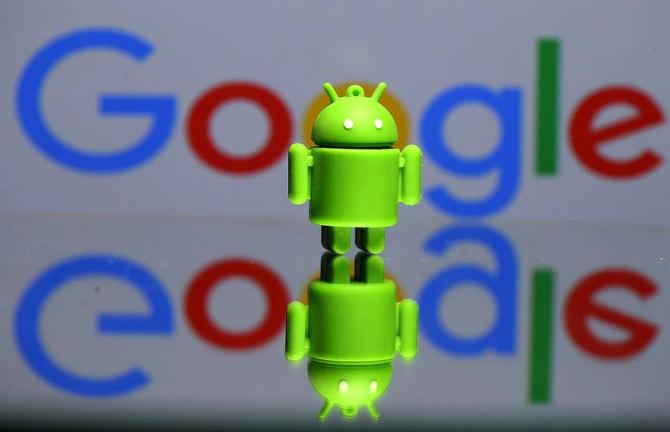Google, in its latest appeal to the Supreme Court, has said the Competition Commission of India (CCI) is protecting Amazon’s interests after having complained that India’s anti-competition body (CCI) had copied part of a European Commission ruling against it for allegedly abusing the market dominance of Android.

The latest twist to the Google-CCI case comes as Google filed an appeal in the Supreme Court on June 26, against the National Company Law Appellate Tribunal’s (NCLAT’s) March 29 order.
The tech giant’s contention is that the NCLAT failed to apply the “effect analysis” part in the CCI order.
In its appeal, which Business Standard has seen, Google said: “The Tribunal correctly held that an effects analysis is required to establish a contravention of Section 4 (abuse of dominance) of the Competition Act, but did not properly apply this test to the Commission’s Order.
"Had the Tribunal applied the effects test, it would have found that Google’s agreements were incapable of causing any anticompetitive effects.”
The CCI had found Google to have allegedly abused its dominant position in contravention of the Competition Act, 2002.
It had penalised Google and asked it to pay Rs 1,337.76 crore for practices related to Android devices.
It also ordered the tech giant to cease and desist from various “unfair business practices” and allow modified versions of its Android operating system, called Android fork.
In the latest Supreme Court appeal, Google alleged the tribunal ignored relevant evidence and relied on what was irrelevant and unreliable.
The only competitor that came forth was Amazon.
“The only competitor who came forth to lament ‘forking down’ was Amazon -- a technology giant -- which instead of investing in creating a competing ecosystem (like Apple, Windows, and Android) wanted to fork down Android OS,” said Google in its appeal.
During its investigation the CCI had approached industry players and asked if Google used its dominance. Amazon was among them.
Amazon told the CCI that Google’s dominance hindered the growth of its FireOS, which was an Android fork.
“Globally, FireOS failed commercially due to poor user experience. In India, the Fire Phone was not even launched. Thus, the Commission called Amazon’s lack of attempt to compete in India a failure and attributed it to Google’s agreements,” said the appeal.
An attempt to get Google’s response on the issue did not elicit a response. Amazon declined to comment on the matter.
Legal experts, however, said the CCI did not just rely on third-party submissions.
“Third-party submissions are one of the many pieces of evidence considered by the CCI.
"One of the most common exercises undertaken by competition authorities worldwide in ‘abuse of dominance’ cases is to seek comments from rivals of the dominant entity in order to get a holistic view of the case before it.
"In any case, enquiries under the Competition Act are proceedings in rem (as opposed to proceedings in personam) and changes directed by the CCI are aimed at protecting the ‘competitive process’ and not the ‘competitor’,” said G R Bhatia, partner, Luthra and Luthra Law Offices India.
Google alleged the tribunal did not take comments by original equipment manufacturers (OEMs) like Samsung, Sony and Oppo.
It relied on players like Lava and Xiaomi, which said they did not attempt to develop an Android fork.
“In its March 2023 order, the NCLAT, while upholding the penalty on Google, had held the submission by Amazon and eight other OEMs were relevant and properly considered by the CCI.
"Accordingly, in the appeal against the said NCLAT order pending before Supreme Court, one of the moot issues will certainly involve adjudication on the correctness and relevancy of the claims of Amazon and other OEMs,” said Hemant Kothari, principal, HK Law Chambers, Jaipur.
The tech giant argues that over 30,000 Indian app developers are distributing their apps through Playstore with more than 150,000 apps currently available.
Almost half the top 200 apps installed in India in 2019 were developed by Indian companies.











